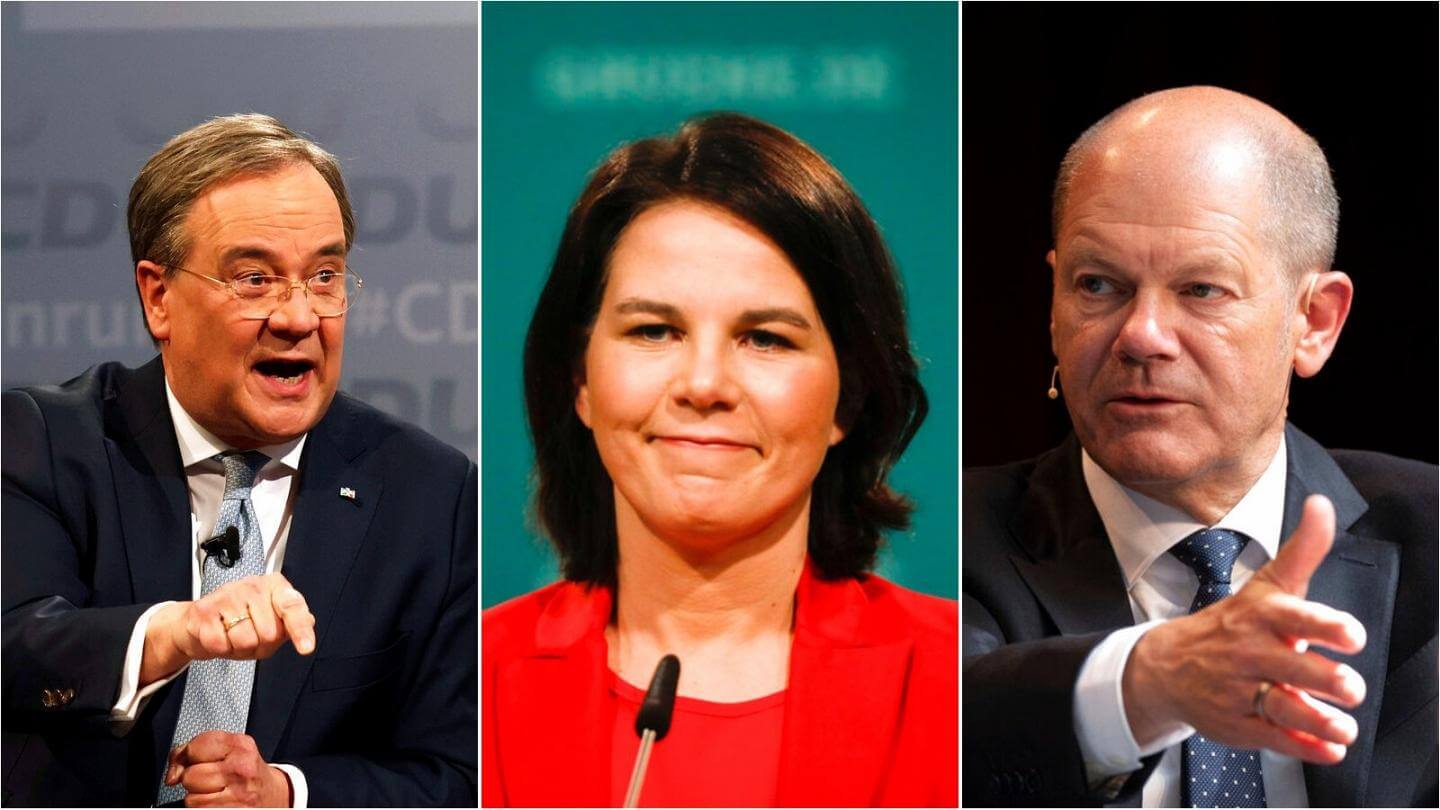Germany will witness a three-way contest for the first time in the federal elections scheduled for September 26 as Olaf Scholz, Annalena Baerbock, and Armin Laschet compete to replace German Chancellor Angela Merkel, who is stepping down after 16 years in office.
Around 60.4 million people are eligible to vote in the polls, which will see the Green party fielding a candidate for the first time.
The centre-left Social Democrats picked Olaf Scholz as their candidate in August 2020, while the Greens nominated Baerbock in March 2021. Merkel’s centre-right Union, which comprises the Christian Democratic Union and its Bavarian partner, the Christian Social Union, appointed Armin Laschet as their candidate in April.
Scholz is currently serving as the finance minister and vice-chancellor of Germany. He first served as a labour minister in Merkel’s government from 2007- 2009. He then became the mayor of Hamburg in 2011 and later accepted the position of finance minister in the Merkel administration.
Baerbock is the youngest contender and has no prior government experience. After her nomination, she said, “I stand for renewal; others stand for the status quo.” Baerbock has been a lawmaker in the national parliament since 2013 and has led the Green party since early 2018, along with Robert Habeck.
Laschet has served as the governor of North Rhine-Westphalia state and lives in the native city of Aachen. He joined the German parliament in 1994 and served as a member of the European Parliament from 1999-2005. Laschet, believed to be a centrist, won the leadership of Merkel’s Christian Democratic Union party in January.
Early snaps polls after a TV debate on Sunday suggested a slim but solid lead of Social Democrat’s Scholz over his rivals in the final leg of the election campaign. The Infratest Dimap poll found that “41% of the 1,500 viewers asked found Scholz the most convincing, a long way ahead of the Christian Democratic Union’s (CDU) candidate Armin Laschet and the Green party’s Annalena Baerbock, on 27% and 25% respectively.”
During the debate, Baerbock accused both the parties currently in the government of failing to do enough about the billions that Germany loses every year due to tax evasion and money laundering. She also challenged her fellow candidates over their parties’ records on the climate crisis. Baerbock said, “We are missing our climate targets, with dramatic consequences, and you have both made clear that you didn’t orientate yourselves around the solutions but just pushed the blame on each other about who was hindering what.”
In response, Scholz and Laschet claimed that their parties are taking the climate crisis seriously. Nevertheless, both candidates also highlighted the need to protect Germany’s leading industries, including the automobile and chemical industries.
Experts believe that the race to become the next German Chancellor remains open, with many postal ballots already cast. On Monday, Fabrice Pothier, the Chief Strategy Officer at political consultancy group Rasmussen Global, told CNBC that most people have already decided who to vote for in the elections. He said, “Voting day is in two weeks, but a large proportion of German people have already voted, so in a way, it’s a campaign where every day is voting day.” “That’s why the result may be unpredictable, and the vote in Germany matters simply because it’s the largest economy and the largest decision-maker on European affairs,” he added.
Looking Ahead: Germany’s Federal Election on September 26
Olaf Scholz, Annalena Baerbock, and Armin Laschet are competing in federal elections scheduled on September 26 to replace German Chancellor Angela Merkel, who has been in the office for 16 years.
September 13, 2021

SOURCE: EURONEWS
